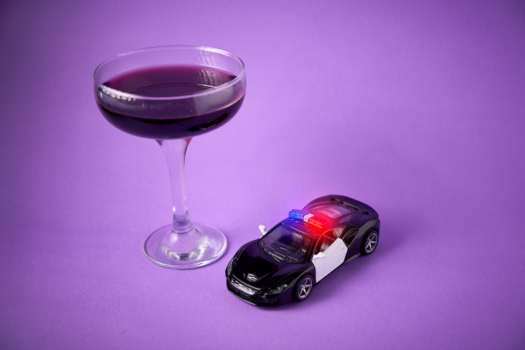
In State v. Thomas Zingis (A-66-21/087132) (Decided August 8, 2024), the Supreme Court of New Jersey determined the proper procedure for challenging a prior Dennis-affected DWI conviction when facing enhanced sentencing on a subsequent DWI.
The case stemmed from the ongoing fallout of then-Sergeant Marc Dennis’s certification of improperly conducted calibration checks of certain Alcotest machines used to determine whether a driver’s blood alcohol content is above the legal limit, which called into question over 20,000 Alcotest results.
Facts of State v. Zingis
In August 2018, defendant Thomas Zingis was charged with careless driving and driving while under the influence (DWI). He had a prior DWI conviction in April 2012. In December 2018, Zingis was found guilty of DWI.
The State requested that Zingis be sentenced as a second offender due to his April 2012 DWI conviction. Relying on State v. Cassidy, 235 N.J. 482, 486 (2018), Zingis argued that his first conviction should be disregarded for sentencing purposes because the State failed to prove beyond a reasonable doubt that his 2012 DWI conviction was not predicated on a Dennis-calibrated Alcotest.
The State responded by asserting that (1) Camden was not one of the Dennis-affected counties, and (2) Zingis’s failure to receive notice, consistent with this Court’s order in Cassidy, was proof that he was not a Dennis-affected defendant.
The municipal court accepted the prosecutor’s representation and sentenced Zingis as a second DWI offender. On appeal, the Law Division also found Zingis guilty of DWI and rejected his request to be sentenced as a first-time offender.
The Appellate Division affirmed Zingis’s conviction but vacated the enhanced sentence, holding that the State failed to prove beyond a reasonable doubt that Zingis’s 2012 DWI conviction was not based on an inadmissible Alcohol Influence Report (AIR).
The New Jersey Supreme Court granted certification and remanded the matter to a Special Adjudicator for a plenary hearing on two questions: (1) which counties were affected by Dennis’s conduct, and (2) what notification was provided to defendants affected by Dennis’s conduct.
The Special Adjudicator filed a report detailing his findings of fact and conclusions of law, upon which the parties largely agree. The Supreme Court’s decision resolves two areas of disagreement: (1) the availability of Exhibit S- 152 — a 180-page Excel Spreadsheet that sets forth solution changes and calibrations on all Alcotest Instruments in New Jersey from November 5, 2008 through June 30, 2016 — and (2) the proper procedure for challenging a prior Dennis-affected DWI conviction when facing enhanced sentencing on a subsequent DWI.
NJ Supreme Court’s Decision in State v. Zingis
The New Jersey Supreme Court’s decision provides detailed guidance on the proper procedure for challenging a prior Dennis-affected DWI conviction when facing enhanced sentencing on a subsequent DWI. As Justice Noriega explained:
We now order that during the initial conference for a DWI matter, the court shall inquire whether the pending matter represents the first or subsequent DWI for a defendant. If the record reflects that the defendant has a prior conviction for DWI, the prosecutor must inform the court, defendant, and defense counsel whether it occurred between the critical dates of November 5, 2008 and April 2016, information readily available to the State in the defendant’s abstract. If so, we now order that the court must then schedule a discovery conference for the State to fulfill its obligation and provide to the defendant and counsel, as well as the court, discovery indicating whether the defendant is a Dennis-affected defendant.
In accordance with the New Jersey Supreme Court’s decision, prosecutors must use the summons number from the earlier offense to search Exhibit S-152, which will be redacted to include only non-personal identifying information.
Once the corresponding entry is located within Exhibit S-152, the prosecutor is to “copy and paste” that row of data into a new document. The AIR number from that entry must then be compared against the Dennis Calibration Repository, which shall be made publicly available by placing it on a State website and shall also be summarized in a Dennis AIR Summary sheet.
If the State determines that the defendant’s prior offense involved a Dennis-affected Alcotest Instrument that produced an evidential BAC reading, corroborated by Exhibit S-152 and the Dennis AIR Summary sheet, judges must afford the defendant a reasonable amount of time to decide whether to challenge the prior conviction.
If the defendant wishes to challenge that earlier conviction, the defendant must file for post-conviction relief in the jurisdiction of the previous conviction. If the defendant, after being made aware of the existence of a Dennis-affected matter, chooses to proceed without challenging the earlier conviction, the court will inquire on the record that the defendant’s decision is knowing and voluntary, and the matter may proceed in the usual course.
With regard to Exhibit S-152, the New Jersey Supreme Court held that once a summons number is cross-referenced in Exhibit S-152, it must be provided to the defendant and defense counsel in discovery. Through that process, the defendant and counsel can see the date and location of offense, summons number, and the defendant’s name. The prosecutor must then use the summons number to search Exhibit S-152. Therefore, Exhibit S-152 in its newly redacted form, excluding all personal identifiers, must be publicly released on the State’s website.
The prior disposition, along with the complete row of data from Exhibit S-152 and the Dennis AIR Summary sheet, together will be deemed proof beyond a reasonable doubt of whether a defendant’s prior DWI conviction is a Dennis-affected matter.
